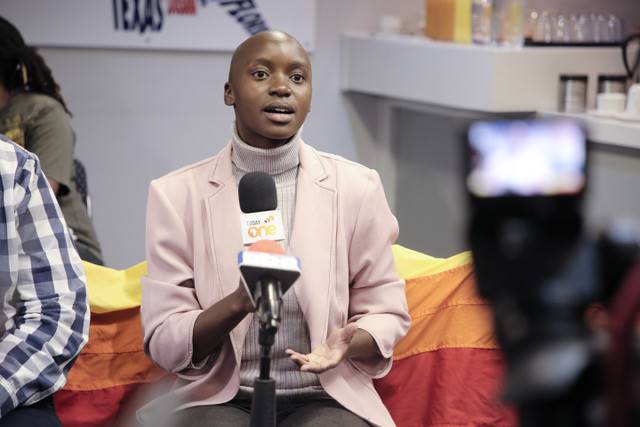
The global Covid-19 coronavirus pandemic has heightened the socioeconomic vulnerabilities of the most marginalised people in our societies, among them members of the LGBTIQ+ community.
Since the first cases of Covid-19 infections were reported on the continent, several African countries have taken precautions – some declaring national disasters and implementing lockdowns to slow down the virus.
Last month South Africa, Zimbabwe, Namibia and Botswana implemented lockdowns in efforts to stop the virus from spreading.
Malawi has a partial lockdown in one city. But LGBTIQ+ organisations have lamented these measures as inadequate, especially to protect the global key population groups.
These include transgender people, men who have sex with men and sex workers.
Many queer organisations across southern African are using scarce resources to tackle several issues.
The impact of Covid-19 on those living with HIV/Aids – prevalent in most communities in these countries – has been highlighted as a challenge for these vulnerable groups.
City Press spoke to a number of advocacy groups to find out how their members were coping.
In a statement, Iranti, a South Africa-based LGBTIQ+ advocacy organisation, said its members were facing discrimination in the healthcare system and economic exclusion, and there were no policies protecting them.
Ndiilo Nthengwe, advocacy and communications officer at Out-Right Namibia, said they had been inundated with calls for help.
“Our health and wellness officer has been inundated with calls in the past week alone, especially from people feeling suicidal.
"We cannot say with certainty that this alludes to the current health measures our government is taking, but it definitely raises serious concerns on what the impact and ramifications of Covid-19 will be.”
“Most people in the community prefer visiting the organisations offering LGBTIQ+ services,” said Dunker Kamba (36), speaking on access to specific services in Malawi.
Kamba is from human rights organisation Centre for the Development of People, whose mission is to create an enabling environment and to protect the wellbeing of LGBTIQ+ and other vulnerable groups.
“Social media will be vital in this period. There are more than five organisations in Malawi working on LGBTIQ+ issues and they all use the peer-educator system. The advantage of using this system is that people may still be able to connect with each other in the different clusters.”
Tiffany Kagure Mugo, a Kenyan living in South Africa, is the co-founder and curator of the pan-Africanist queer online hub HOLAfrica. She said her main worry was that people would be “superlonely” during the lockdowns in different countries.
“There is a difference between wanting a quiet weekend in and having little to no physical human contact for weeks. Loneliness can really mess with someone’s mental health,” Mugo said.
In conversations with LGBTIQ+ South Africans, many were also worried about mental wellness support during the Covid-19 crisis.
Access to group counselling sessions and therapists has been limited to emails and phone calls.
Others worried about having to be in lockdown with relatives who were triggers for trauma and rejection.
Many people have been reaching out on social media platforms – opening up online community spaces to check on one another and share anxieties caused by the isolation.
Gays and Lesbians of Zimbabwe (Galz) said they have had to close or reorganise some of their major referral sites.
Galz is a membership-based organisation that promotes, represents and protects the rights and interests of LGBTIQ+ people in Zimbabwe.
“The redirection of sensitised staffers and resources has reduced access to key HIV-related services. We now have to refer people to other sites ... It is difficult for our clients who already have established relationships in a safe space,” Galz said in a written response.
Another reality was that home was not always a safe place for many queer people.
With governments ordering people to stay indoors and to work from home, there are fears that many organisations will not be able to support the LGBTIQ+ communities during this global health crisis.
“These fears are multipronged,” said Nthengwe.
“Socially, conditions in the homes could worsen, especially in cases where the majority [of our members] don’t have the community and privilege to find safe spaces or shelters to stay across Namibia.
"Though shutting down bars, clubs and lounges are excellent preventive measures to reduce the spread of Covid-19, these places were essentially also spaces where our community could find solace and camaraderie, away from the abuse and bullying at their homes,” Nthengwe said.
Said Galz: “We recognise that our members view our drop-in centres as safe spaces and we are proud that they feel encouraged to be their true selves at Galz. So, of course, we have concerns for those who may have a tough time being at home full time.
“They say there are many dangers such as bullying, beatings and other abuses, even in the home environment. We have been in discussions internally on where we can direct our members who are unsafe. It is an ongoing plan.”
This series on LGBTIQ+ life in Africa is made possible through a partnership with The Other Foundation. To learn more about its work, visit theotherfoundation.org
 | ||||||||||||||||||||||||||
Get in touchCity Press | ||||||||||||||||||||||||||
| ||||||||||||||||||||||||||
| Rise above the clutter | Choose your news | City Press in your inbox | ||||||||||||||||||||||||||
| City Press is an agenda-setting South African news brand that publishes across platforms. Its flagship print edition is distributed on a Sunday. |




 Publications
Publications
 Partners
Partners








